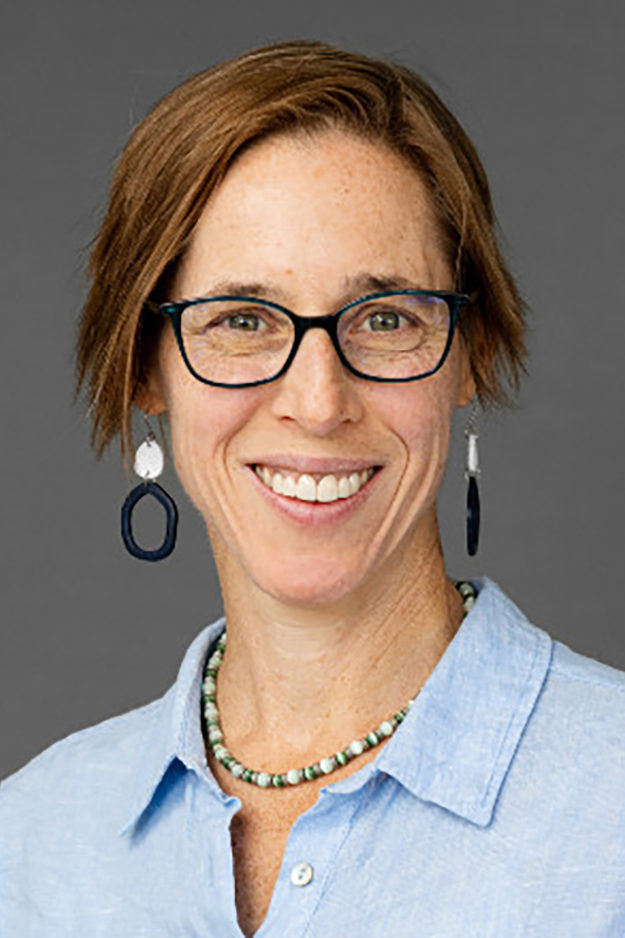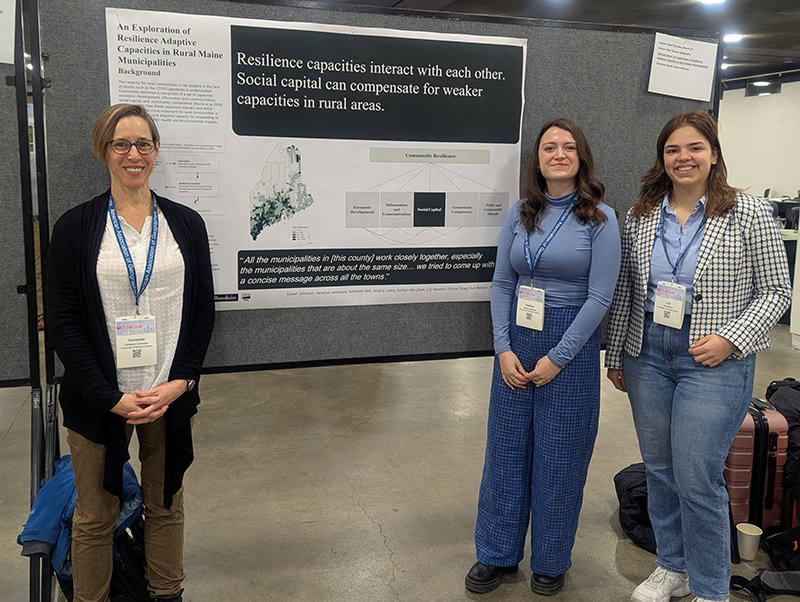Building Connections Over Time: A Q & A with University of Southern Maine Professor Vanessa Levesque

This interview between writer Sonja Heyck-Merlin and Vanessa Levesque has been condensed and edited for clarity.
Can you introduce yourself?
I am currently an associate professor of environmental science and policy at the University of Southern Maine, serving as the social scientist in our department. My day-to-day work is that of a professor, so each semester I teach classes on environmental planning and environmental policy. I also engage in different research efforts with a focus on rural resilience efforts.
Can you talk about your historical relationship with the Mitchell Center?
I had been working for the town of Brunswick as a natural resource planner, and in that role I collaborated on a project with Aram Calhoun who is now a professor emeritus at the University of Maine. She was spearheading an initiative to train folks at the town level to identify vernal pools, and I worked with her on fine-tuning that process. That was the start of my relationship with UMaine.
Aram became part of UMaine’s Sustainability Solutions initiative, a five-year National Science Foundation project. Her part of the project involved working with regulators, legislators, municipal officials, and landowners to develop innovative approaches to vernal pool conservation at the local level. She invited me to be one of her doctoral students, and I ended up working with her and Kathleen Bell, an economist.
I did not have a background in economics before starting the doctorate which is quite unusual. Typically, when you pursue a doctorate, you narrow down your focus, and instead I got to expand my knowledge and that was very appealing to me.
Another reason that I got involved in the project was that it was a real on-the-ground effort that was being studied. I got to participate in an effort that was designed to help balance real estate development and natural resource protection in Maine.
What about your current relationship with the Mitchell Center where you serve as a faculty fellow?
I still have strong connections with different folks connected with the Mitchell Center who do sustainability research. The research arm of my job is along the lines of the Mitchell Center’s emphasis on interdisciplinary, place-based, stakeholder-driven research.
David Hart has been instrumental in keeping me involved with the Mitchell Center and keeping me connected with this incredible network of people — in Maine and beyond — who carry on this method of place-based, collaborative work.
More specifically, for the last five years, I’ve been researching rural resilience efforts with Kathleen Bell, Eileen Johnson from Bowdoin College who was part of my Mitchell Center doctoral cohort, and Jessica Leahy. Our recent work included a USDA-funded project researching the role of municipal digital services in advancing rural resilience. We’re also studying the capacity of municipalities across Maine to apply for and administer grant funds to address local issues.

How do your experiences with the Mitchell Center carry into the undergraduate classes you teach?
At the Mitchell Center, I was steeped in the idea that research itself can be stakeholder driven, interdisciplinary, and solutions-oriented. It really spoke to what I already believed and then gave me more skills and knowledge for carrying that kind of work into the classroom.
I bring a lot of real-world examples into the classroom. This is really important to me no matter what I’m working on.
For example, in my environmental planning class, I invite multiple municipal planners as guest lecturers. One might focus on transportation planning and another on planning for wetlands. It helps the students to understand how what they are learning about applies in the real world and what kind of jobs exist.
I also have two to four student research assistants every semester, working around five hours a week. With training and guidance, they get to meet with external partners, do solutions-oriented research, and present results at places such as stakeholder meetings and the Maine Sustainability and Water Conference. These positions provide students with an opportunity to engage in the type of place-specific, stakeholder-driven research that undergraduates don’t often have. Many USM students remain in Maine or the New England region and can now bring this orientation to whatever position they land.
